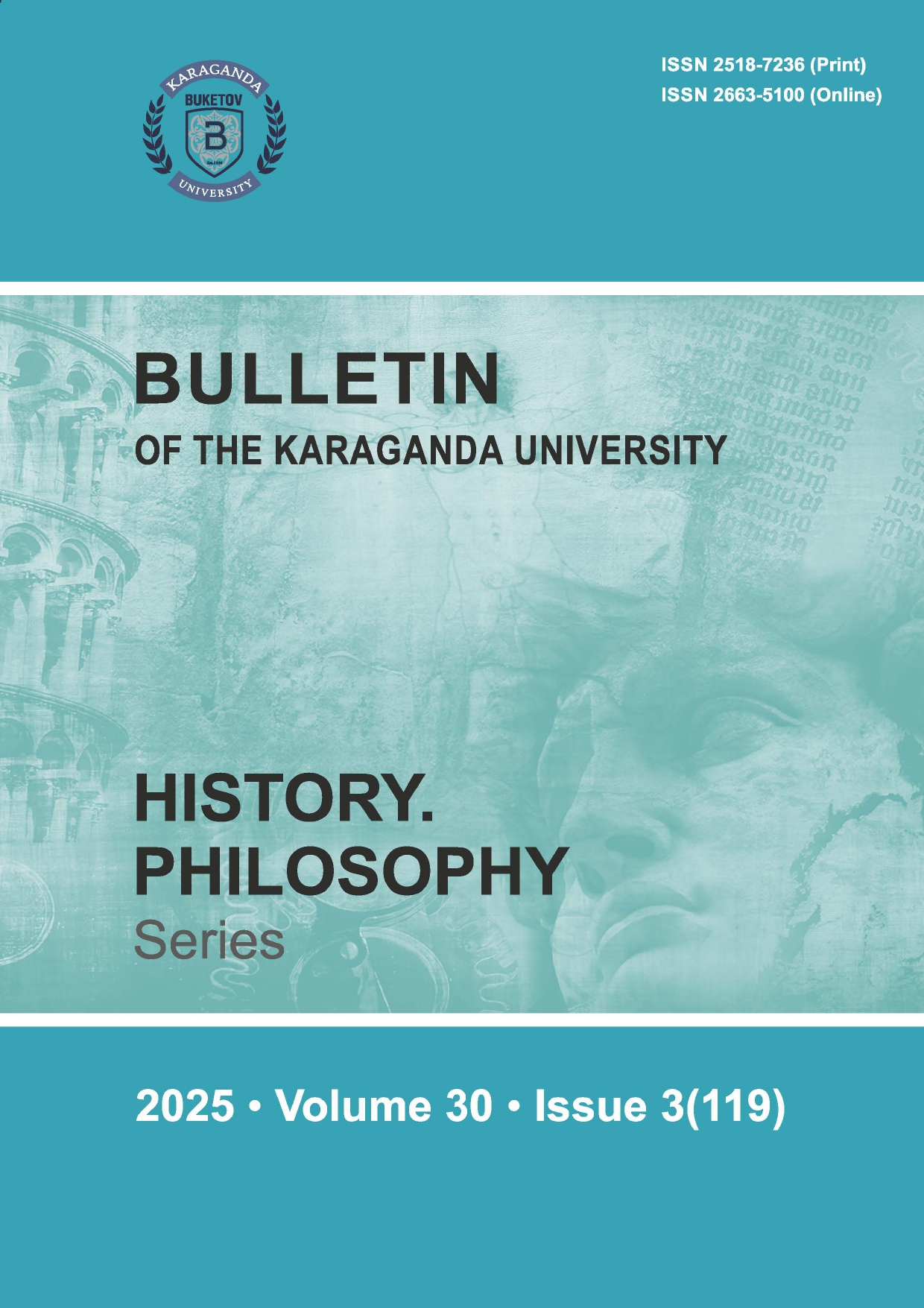The Existenza of Cultures in the Age of Globalization: Dialectics of Unity and Disintegration
DOI:
https://doi.org/10.31489/2025hph3/319-325Keywords:
cultural, globalization, national, uniqueness, localization, integration, hybrid, models, traditional, values, geopolitical, conflicts, diversity, dialecticsAbstract
This article explores the conflicting nature of globalization, focusing on how global integration impacts thepreservation of cultural identities. It looks at the push and pull between cultural unification and local tradi-tions in today’s fast-changing world shaped by technology and shifting geopolitics. The analysis draws on thework of S. Huntington “Clash of Civilizations,” F. Fukuyama “The End of History?,” and D. Held’s ideas onglobal integration. It also brings in perspectives from Russian scholars L.I. Fedorova and P.I. Kasatkin tohighlight regional and cultural angles. The study combines theory with real-world examples from China, Rus-sia, and several Islamic countries. These cases show how states may welcome modernization and global cul-tural influences, yet still reject liberal democratic norms and hold on to traditional values. The findings sug-gest that globalization doesn’t always result in cultural blending. Instead, it often leads to hybrid forms —where global and local forces collide, coexist, or adapt to each other. The article highlights how cultural re-sistance and selective adaptation can help societies maintain their uniqueness under global pressure. It alsolooks closely at the role of identity, memory, and cultural symbols in this process. Overall, the piece arguesthat globalization isn’t just about dominance or uniformity. It’s a much messier process of negotiation, wherecultures reshape themselves, resist certain aspects, and find ways to adapt. In doing so, globalization becomesboth a challenge and a chance for deeper intercultural exchange.




